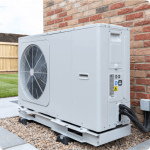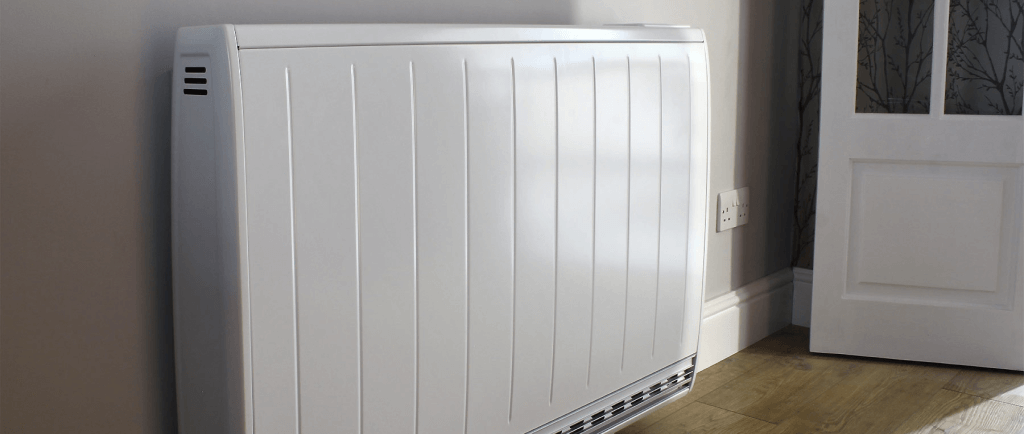
Air Source Heat Pump (ASHP)
Find out more

Electric storage heaters are home heating devices that store thermal energy during off-peak hours, when electricity is cheaper and release it gradually to heat living spaces throughout the day. They contain heat-retaining materials, such as ceramic bricks, which absorb and store heat generated by electric heating elements, providing an efficient and cost-effective way to maintain warmth in a home.

An electric storage heater works by using electricity to generate and store heat during off-peak hours, typically overnight, when electricity rates are lower. Inside the heater are heat-retaining materials. Electric heating elements heat these materials, storing thermal energy. During the day, the stored heat is gradually released into the room, maintaining a comfortable temperature. Many storage heaters have controls to regulate the amount of heat stored and the rate at which it is released, allowing for efficient and cost-effective heating.
Grants are available to replace inefficient or faulty storage heaters with new units that can be up to 30% more efficient, leading to significant savings on your electricity bills.
To qualify, you must own the property and currently have electric storage heaters, not electric fires or portable heaters. Additionally, you need to be receiving a qualifying benefit.
Please note that landlords and private tenants are no longer eligible for heating grants, but we can still provide assistance in other ways.
*Sorry, we can’t accept applications from social housing customers.
Real Expertise: We’ve been installing Electric Storage Heaters for many years. Not only can we design and install a system that meets your heating needs, but we’ll also guide you in making the right choices.
Custom Solutions: Every building is unique. We’ll assess your home and find the best green energy solution for it.
Clear, Simple, Transparent: We want to be completely upfront about our work, the cost, and your eligibility for any Electric Storage Heaters grant. So before you make any decisions, we’ll give you a clear understanding of your options, and the potential energy and financial savings.